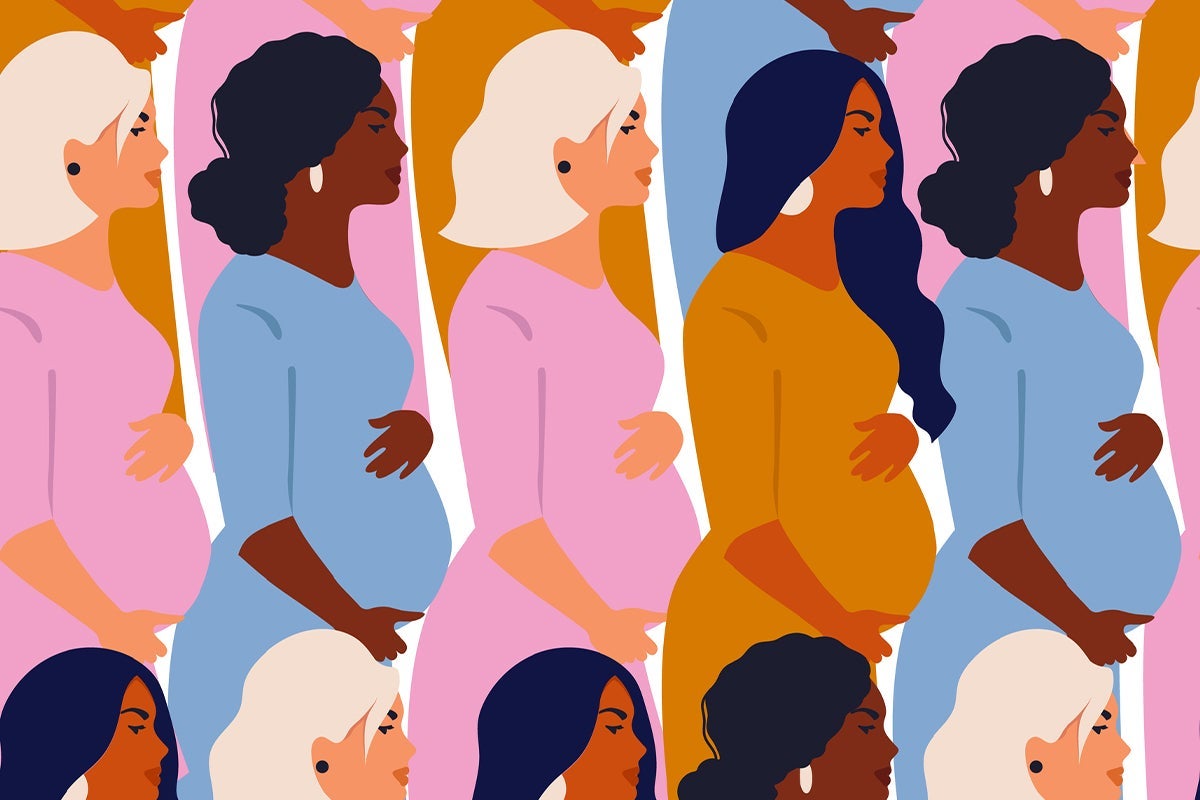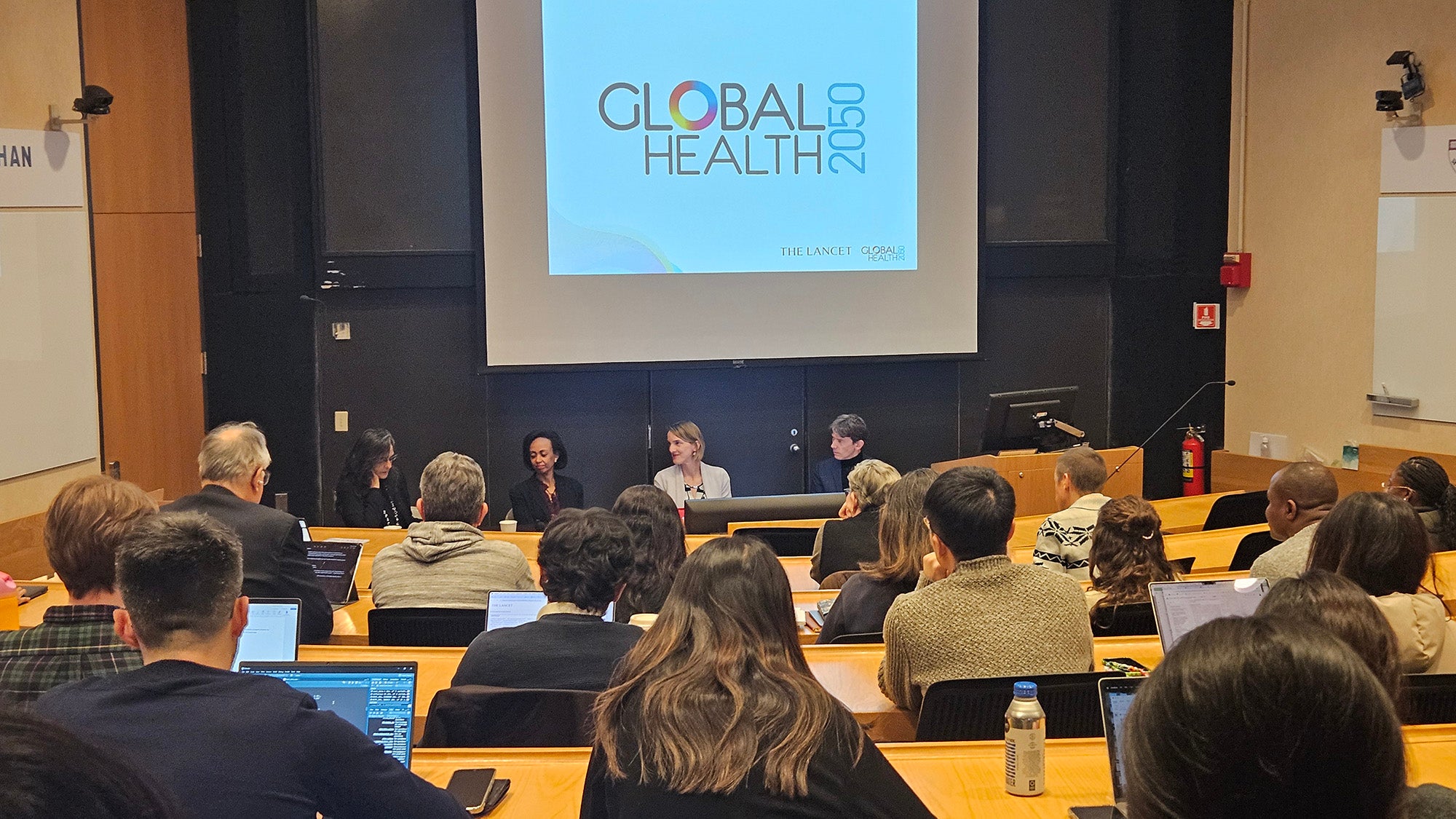Commentary: Maternal, infant health must be prioritized amid climate change

June 6, 2024—As climate change continues to escalate, clinicians, policymakers, and communities must take specific action to protect maternal and infant health, according to experts from Harvard T.H. Chan School of Public Health.
A commentary by the experts was published May 24 in JAMA Network Open, alongside a new study on the links between heat waves and preterm and early-term birth. The commentary’s authors—who were not involved in the study—were Caleb Dresser, director of health care solutions for the Center for Climate, Health, and the Global Environment (Harvard Chan C-CHANGE); Shruthi Mahalingaiah, assistant professor of environmental, reproductive, and women’s health; and Kari Nadeau, professor of climate and populations studies and chair of the Department of Environmental Health.
Dresser, Mahalingaiah, and Nadeau wrote their piece in response to the study’s findings that during a heat wave, the risk of preterm or early-term birth may increase one percent for every 1.8 degrees the temperature rises above average. This risk disproportionately impacts families belonging to lower socioeconomic groups and/or racial minorities. The commentary authors praised the study for shining a light on extreme heat’s health consequences for pregnant individuals and infants, two groups often overlooked in research and public discourse around heat and health.
“The inclusion of obstetrical, maternal, and fetal outcomes in our conversation around extreme climate events is critical,” Mahalingaiah said in a June 4 Inside Climate News article.
The authors added that “opportunities abound…to address these distressing findings,” including solutions to help mitigate climate change altogether and solutions to help adapt systems, infrastructure, and populations to an already warmer planet.
“Physicians, nurses, and others working in direct patient care may choose to counsel pregnant patients and caregivers of infants on the risks associated with hot weather,” Dresser, Mahalingaiah, and Nadeau wrote. “In public health agencies, application of similar methods [to the study] at local scales may…identify at-risk populations that can be prioritized to receive heat health protection interventions. For policymakers and members of the public, the increasingly clear connection between heat waves and harm to pregnant individuals and infants provides an important impetus to address root causes of our escalating exposure to heat waves.”
Read the JAMA Network Open commentary: Preterm and Early-Term Birth, Heat Waves, and Our Changing Climate
Read the Inside Climate News article: For Pregnant People, Heat Waves Bring An Increased Risk of Preterm and Early Term Babies, Study Finds
Illustration: iStock/Oksana Kalmykova


